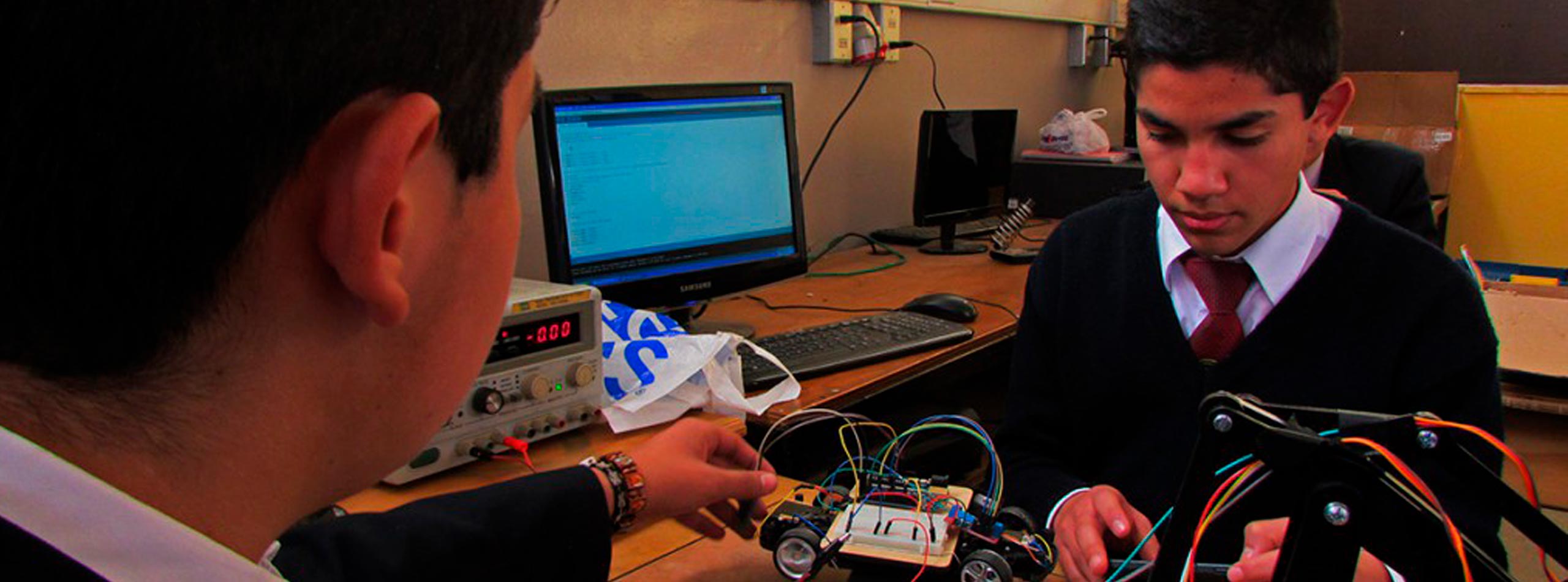07.04.2016
Educating technological innovators in Chile
Innovación Modular Educativa Técnológica (Modular Educational Technological Innovation #IMET) is the name of the project through which we promote technological and teaching tools to develop STEM abilities and 21st century skills among pupils in the 1st to 4th middle grade cycles.
Educating technological innovators in Chile

Innovación Modular Educativa Técnológica is the name of the project through which we promote technological and teaching tools to develop STEM abilities and 21st century skills among pupils.
Through key areas such as robotics, teamwork, programming, project methodologies, prototyping and design techniques, students and teachers will progress through learning modules until they have completed on average 60 hours for 1st and 2nd grade students and 120 hours for 3rd and 4th grades, over a total of thirty sessions held throughout the academic year.
The original proposal is based on an educational programme in collaboration with Puente Alto’s Liceo Técnico Profesional Las Nieves, in Santiago which will benefit more than 1,000 teachers and students.
Using workshops, specialist tutors from the Fundación Telefónica will share their knowledge in Programming, Robotics, Automation, Arduino IDE (Integrated Development Environment), Design, Videogames and Web tools in order to supplement the range of existing subjects and link the current school curriculum with this new learning methodology which strengthens skills and knowledge.
Following a strong commitment to the Colegio Industrial Las Nieves run by the foundation La Protectora de La Infancia, the Fundación Telefónica seeks to take a big step forward in helping to establish a new standard in education – a tool which empowers students in the changing world of employment and in turn strengthens the skills of teachers in schools.
We aim to encourage the development of 21st century skills such as technological knowledge, critical and creative thinking, the ability to work as part of a team and across a number of disciplines as well as the use and applications of information and technology in general, so that students are capable of creating a project of their own through a design methodology.
It is a fact that 65% of children who start school this year will end up in jobs which do not yet exist. The impact of this statistic encourages us to evaluate our ability to change the present through proactive policies in the field of education. We are aware of and can demonstrate the problems that exist for young people at the time they come face-to-face with the fast-changing world of work. This inspires us and it is for this reason that the Fundación Telefónica has, as of 2016 onwards, is committed to a major project of in the field of education, the principal objective of which will be working together to create a new model of graduates in various technical professional disciplines more suited to the demands of present and future work environments.